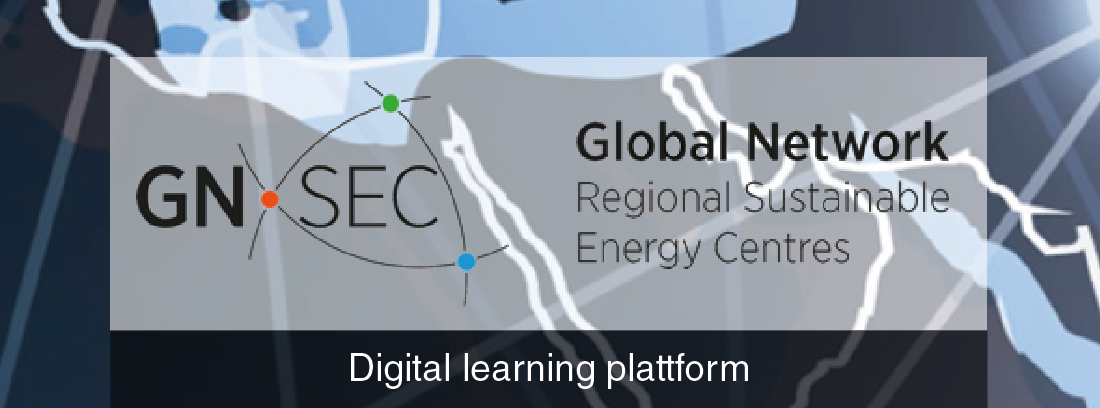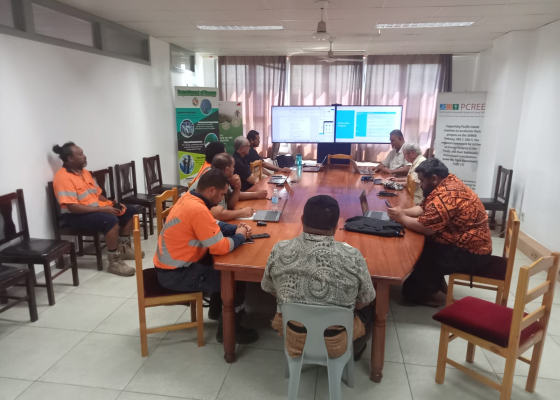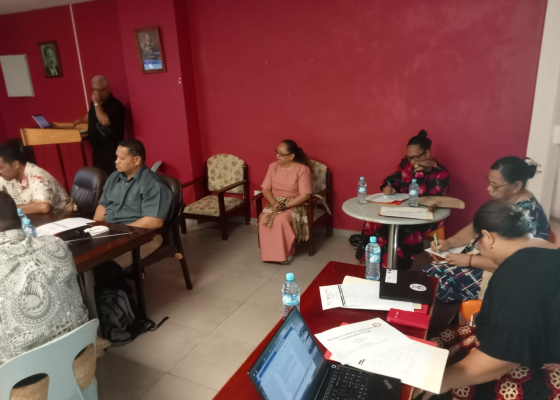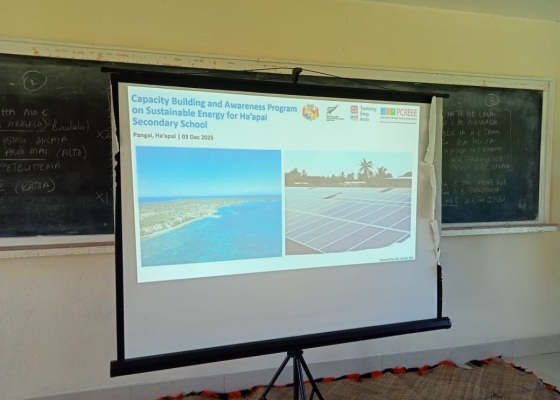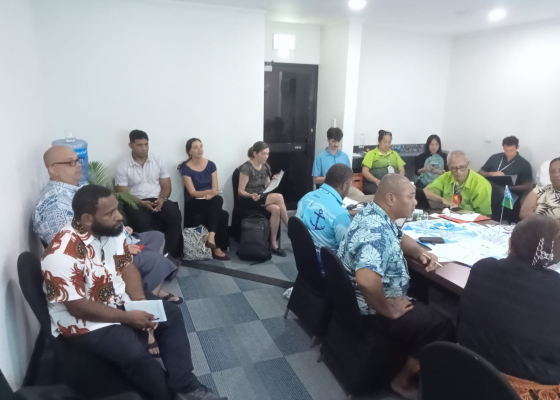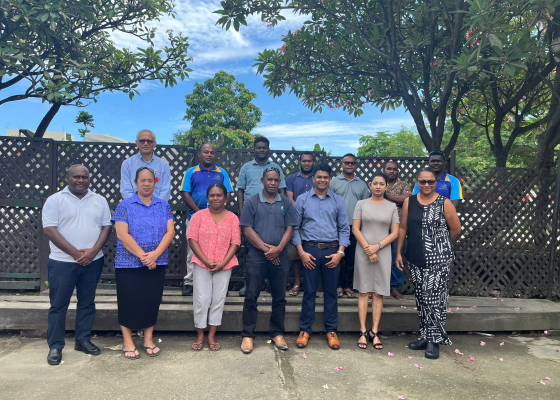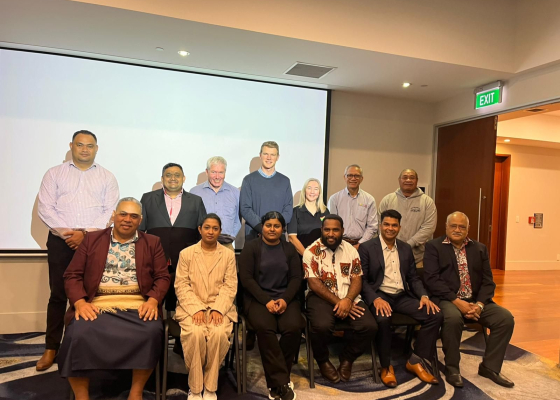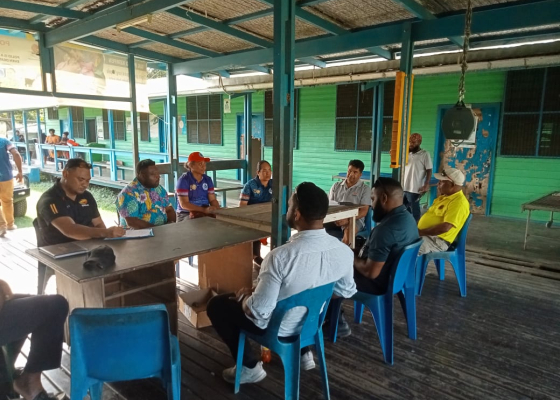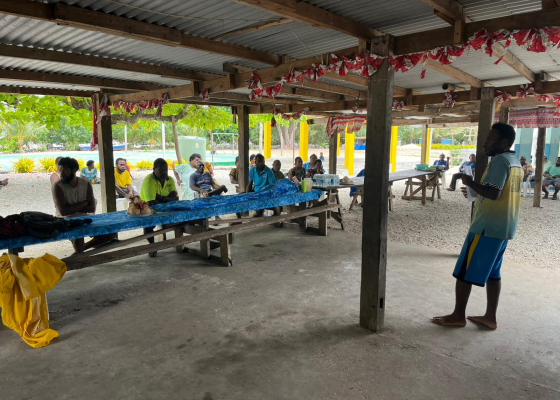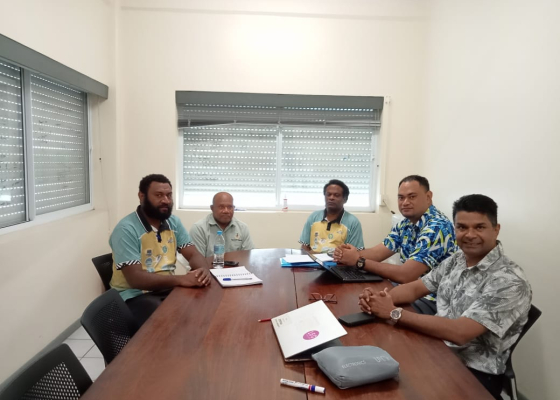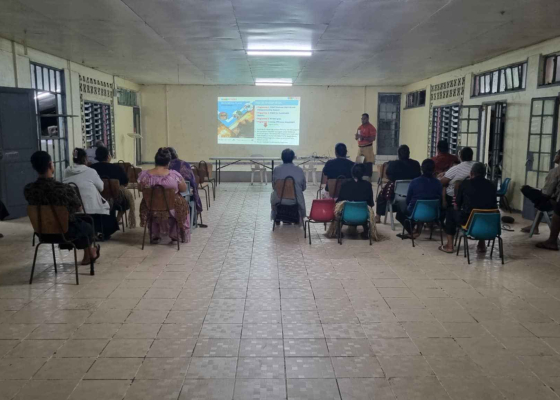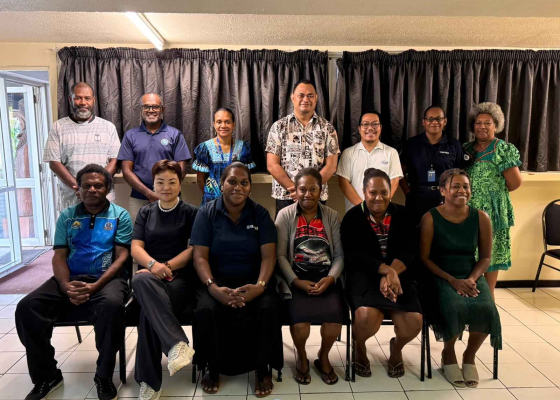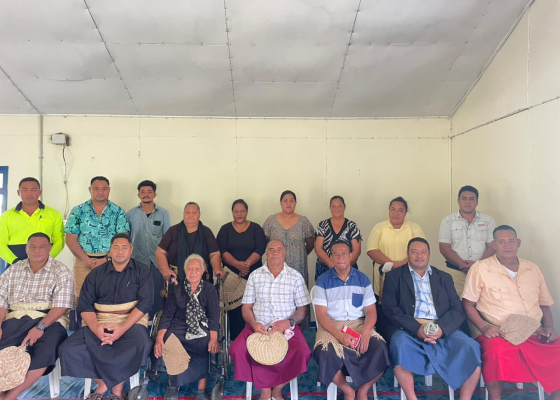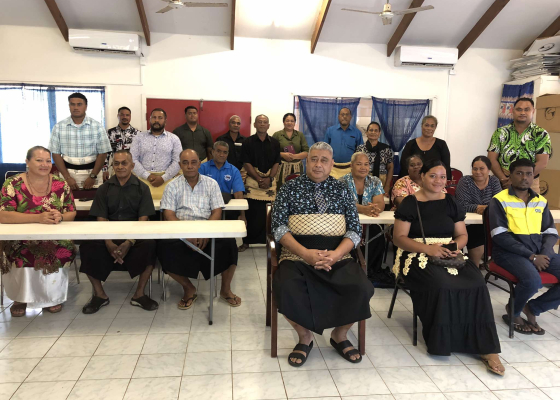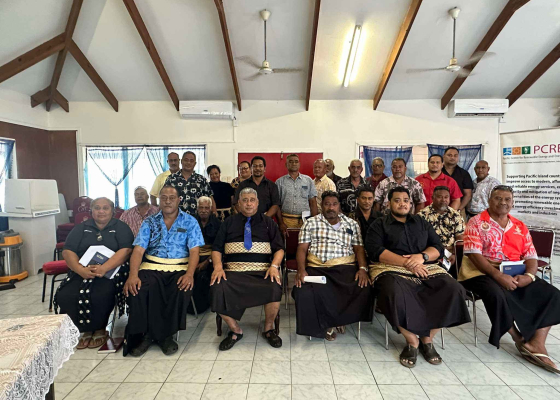PCREEE Supporting Kiribati E-mobility development
Kiribati, 26 May 2022. The Kiribati Government sets its renewable energy targets (Kiribati Integrated Energy Roadmap 2015-2017) of 23% to 100% for individual islands by 2025. One of its key priorities is taking the lead in e-mobility development by identifying the appropriate e-mobility technologies for Kiribati, supported by appropriate policies and incentives. The Pacific Centre for Renewable Energy and Energy Efficiency (PCREEE) jointly with the Ministry of Infrastructure and Sustainable Energy (MISE) and the Public Utilities Board (PUB) of Kiribati conducted a webinar to support the e-mobility development in the Kiribati. The purpose of the webinar was to raise awareness amongst the Kiribati electrical vehicle (EV) stakeholders on the existing e-mobility projects, policy instruments and regulation measures development in the Pacific to assist with Kiribati’s EV Bus project.
The webinar is part of the technical assistance that the PCREEE offers to its member countries based on its Sustainable Mobility Programme. The webinar was also to share technical and economic experiences to empower the Kiribati’s MISE and PUB to make informed decisions on its E-bus project.
The webinar was opened by the Deputy Secretary of MISE, Mr Arobati Teewe. “Electric Vehicle is an interesting new technology and given it is one of the key priorities of the government to identify the appropriate e-mobility technology. The webinar is an opportunity to explore and introduce EVs to Kiribati in the future,” said Mr Teewe. He acknowledged the support of the PCREEE to mobilize EV experts from the region and abroad to share experiences and insights on e-mobility development in the Pacific.
The webinar was facilitated by Mr Tiaon Aukitino from the Kiribati PUB and the PCREEE Programme Delivery Officer, Mr Kakau Foliaki. Presenters from the region includes Mr. Andrew Campbell, a New Zealand based consultant of the United Nations Industrial Development Organisations (UNIDO) who has mentored PCREEE’s sustainable mobility programme, Ms. Julia Hollnagel from Global Green Growth Institute (GGGI) and Ms. Kisato Nagakuro from the Overseas Environmental Cooperation Center (OECC) of Japan.
Mr Tiaon Aukitino from the PUB presented Kiribati’s proposed e-mobility project. Kiribati’s land transport emission accounts for 28% of its national GHG emissions. The e-mobility project aims to electrify portion of the public transportation with transition to electric buses targeting the government and the SOE public servants. Mr. Aukitino states that the proposed project will save 50% of the Government’s $1.8 million annual cost on transportation.
Mr Campbell, highlights the need to have an interest group within the relevant agency in government to drive and coordinate EV developments, having a clear mandate and EV roadmap adopted by government, robust financial and economic incentives to activate the market and established standards in place to ensure safety and resilience are closely monitored EV developments in the Pacific Island Countries, and also the Global experience with the EVs. Ms. Hollnagel presented on GGGI’s various e-mobility support in the Pacific and Ms Nagakuro on the feasibility study on the Low Emission Land Transport study in Vanuatu.
The webinar was concluded with a closing remark from the Deputy Secretary of the MISE, thanking PCREEE, presenters and participants for their support and highlighting that the webinar has been successfully conducted.
The webinar was among the first national interventions by the PCREEE in Kiribati. The PCREEE looks forward to similar collaborations in the areas of sustainable business startups and mentoring, renewable energy mini-grids as well as energy efficiency investments.
End
Upcoming Events
-
03/25/2026 to 03/26/2026
-
03/30/2026 to 04/03/2026
-
04/09/2026 to 04/10/2026
-
04/27/2026
-
04/27/2026 to 04/29/2026







